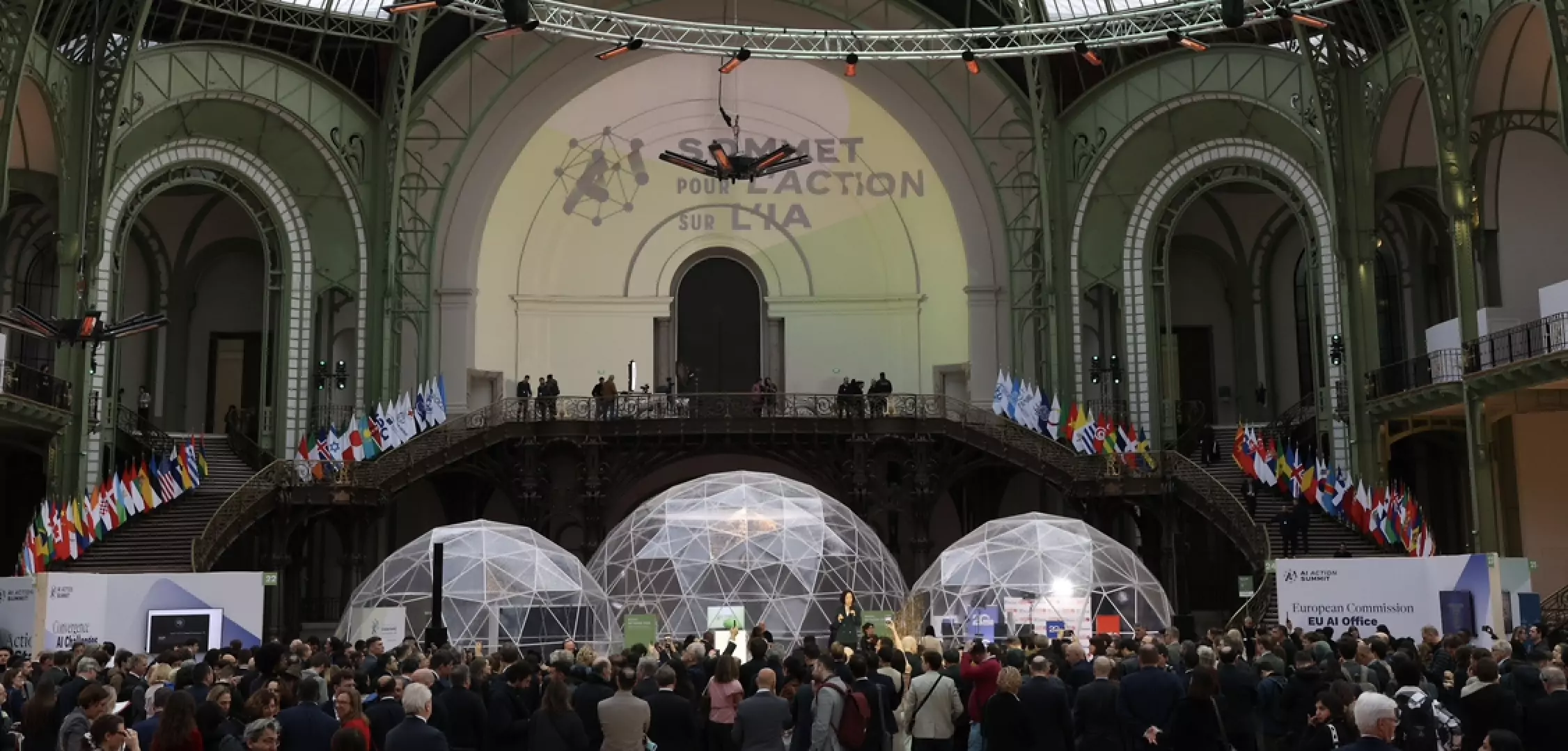Global agreement, European funding and initiatives, the first official international outing of the new US Vice-President JD Vance, the Artificial Intelligence Summit in Paris becomes the pivot of global strategies on what increasingly appears to be a central issue for governments, companies, economies, innovation.
Let us start with the agreement, or rather the international declaration on AI that many countries have signed, starting with France but also China and India, but which others, with the US and the UK in the lead, preferred not to sign. The US vice-president speaking at the summit emphasised that the US intends to maintain and strengthen its leadership on AI and does not share the European strategies that see regulation as the high road, a regulation that, again in Vance’s words, poses the risk of slowing down the innovation process of an industry that he defined as transformative. On the other hand, the signatories instead set themselves up as advocates of development that is open, ethical and inclusive.
The two-day Parisian summit that took place between the Grand Palais on the most institutional day on 10 February and at Station F, the centre of innovation and the French start-up ecosystem, on 11 February highlighted how crucial AI has become when it comes to geopolitical balances, industrial policies and investments. France proposes itself as a European leader and does so by taking President Emmanuel Macron’s hand, who once again emphasises his focus on issues related to the world of innovation, start-ups, and technology.

“This event shows how everyone is trying to play a role on this very captivating issue both politically and in terms of the market, the Trump administration does it with Vance telling the Europeans that they are wrong to regulate, Ursula von der Leyen does it by announcing funds and projects with a move that is certainly positive but which then has to find operational feedback, and Macron does it, welcomed like a rock star, because he is certainly the politician in Europe who is showing more attention and also expertise on the subject,” Francesco Cerruti, general manager of Italian Tech Alliance, tells Startupbusiness who flew to Paris to be at the meetings at Station F.
It is precisely the announcements by the President of the European Commission that have been echoed in recent days and bode well for a new role of the European Union in the global landscape of artificial intelligence. We started off with OpenEuroLLM, which we wrote about here, a European consortium of 20 companies, academia, research centres and supercomputers, which was financed with 52 million euros, followed by the announcement of the EU AI Champions initiative, which is animated by a pool of private companies, mainly French and German, mainly French and German, but the announcement that reverberated most was that of InvestAI, an investment fund wanted by the European Commission that starts with an endowment of EUR 20 billion to support the realisation of the infrastructure but aims to unlock up to EUR 200 billion It is basically the European version of the $500 billion Trumpian Stargate, the announcement of which was made shortly before the Chinese DeepSeek news broke.
Many announcements then, all to be kept under the magnifying glass to understand how they will evolve, or rather how they will turn into concrete projects and opportunities for European companies and start-ups, for European innovation as a whole.
‘It is clear that we have to play the game on a European level,’ Cerruti adds, ‘firstly because it is only right that we do so in order to play on an equal footing with the others, and secondly because as Italy we are behind other countries in terms of evolution on this front. The value of the Paris event lies precisely in placing the issue of artificial intelligence at the centre of the socio-political dialectic, with a clear need to share competences, but to speak more and more with one voice. It is true that there are stronger positions, such as France, but also Germany, the United Kingdom and the Nordic countries, and less strong positions such as Italy’s, but it is also true that no one can go it alone.
Italy is not standing still, the CDP Venture Capital fund, which aims to have an endowment of one billion euro, is there to prove it, and there are initiatives, including from companies and scaleups, that show the country’s ability to innovate, but the fact remains that we are still too small to play the game independently, and in any case it would not make sense if there were a European context that shows attention to the issue and not only at the regulatory level.
These announcements and acknowledgements in relation to artificial intelligence, the desire to create as collaborative an environment as possible at a global level and the role of the EU are fundamental, but we must not forget that Europe must act effectively at a structural level on all fronts of innovation: ‘policy work must continue,’ Cerruti concludes, ‘the start-up and scale-up forum convened by Commissioner Ekaterina Zaharieva next week involving policy makers and operators can be an important moment, for example, to relaunch the commitment on the so-called 28th regime is certainly important and can become an opportunity to show that it is possible to overcome the regulatory resistance that member states tend to have’.
Excessive parcelling out of regulations is potentially even more damaging than any regulation, if regulations are at all, because it effectively limits the opportunities for scaling up innovation and thus the capacity for growth and competitiveness. It is therefore crucial that Europe take the most decisive step towards harmonising regulatory infrastructures, otherwise any investment in technological infrastructures would risk being unable to realise its full potential and this is something that cannot be afforded in a global competitive environment. (photo: Paris AI summit website)
ALL RIGHTS RESERVED ©
